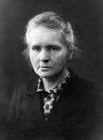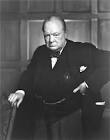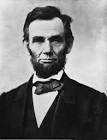Mahatma Gandhi – The Great Indian Leader, Biography, Family, Net Worth
Mohandas Karamchand Gandhi, popularly known as Mahatma Gandhi, was a prominent figure in the Indian independence movement against British rule. Born on October 2, 1869, in Porbandar, a coastal town in Gujarat, India, Gandhi’s leadership and philosophy of nonviolent resistance have left an indelible mark on the world. A lawyer by profession, Gandhi became the face of India’s struggle for independence and inspired movements for civil rights and freedom across the globe.

Personal Information
| Full Name | Mohandas Karamchand Gandhi |
|---|---|
| Nick Name / Stage Name | Mahatma Gandhi |
| Born | October 2, 1869, Porbandar, British India |
| Died | January 30, 1948, New Delhi, India |
| Age | 78 |
| Gender | Male |
| Zodiac Sign | Libra |
| Hometown | Porbandar, Gujarat, India |
| Nationality | Indian |
| Years Active | Late 19th century – mid 20th century |
| Marital Status | Married |
| Husband/Wife | Kasturba Gandhi |
| Children | 4 Sons, Harilal, Manilal, Ramdas, Devdas |
| Political Affiliation | Indian National Congress, Independent Activist |
| Alma Mater | University College London, Inner Temple |
| Profession | Lawyer, Activist, Writer |
| Net Worth (approx.) | N/A |
| Debut | South Africa (1893) |
| School | Alfred High School, Rajkot |
| College | Samaldas College, Bhavnagar, University College London |
| Education Qualification / Degree | Barrister-at-Law |
| Hobbies/Habits/Interests | Simple Living, Fasting, Spinning Wheel |
| Favorite Clothing Brands | Khadi |
| Favorite Gadgets | None |
| Food Habit | Vegetarian |
| Awards | Not Applicable |
| Notable Works | Civil Disobedience Movement, Dandi Salt March, Champaran Satyagraha |
| Website | N/A |
Early Career
Mahatma Gandhi’s early career began as a lawyer in South Africa, where he migrated in 1893. During his time in South Africa, Gandhi witnessed and experienced racial discrimination, which shaped his ideology and resistance against injustice. He engaged in political activism and became a leader in the Indian community in South Africa, campaigning for their civil rights.
Education
Gandhi’s educational journey took him to prestigious institutions both in England and India. He studied law at University College London and was called to the bar at the Inner Temple. Gandhi’s academic years were marked by his exceptional performance and a keen interest in philosophy and religion, which would later influence his approach to activism.
Career
Mahatma Gandhi’s career as an activist began in South Africa, where he organized campaigns against discriminatory legislation targeting the Indian community. Upon his return to India in 1915, Gandhi became involved in the country’s independence movement. He advocated for nonviolent civil disobedience and launched several campaigns against British rule.
| Year | Position | Achievement |
|---|---|---|
| 1919 | Satyagraha Movement Leader | Launched All-India Hartal in Response to Jallianwala Bagh Massacre |
| 1930 | Indian National Congress Leader | Led Dandi Salt March, a Milestone in the Civil Disobedience Movement |
| 1942 | Quit India Movement Leader | Called for British Withdrawal from India, Significantly Hastening Independence |
Contributions and Impact
Mahatma Gandhi made immense contributions to the fields of politics, philosophy, and civil rights. His development of Satyagraha, a form of nonviolent resistance, shaped numerous freedom movements around the world, including the American civil rights movement led by Martin Luther King Jr.
- Satyagraha Movement
- Introduced the concept of nonviolent resistance and civil disobedience.
-
Inspired movements for civil rights and freedom in various countries, including the United States and South Africa.
-
Indian Independence Movement
- Provided dynamic leadership to the Indian National Congress and the broader independence movement.
-
His call for religious tolerance and unity shaped the secular fabric of independent India.
-
Civil Rights
- Advocated for the rights of the untouchables and worked towards their emancipation.
- Strove to empower women and promoted gender equality through his actions and writings.
Awards and Honors
Mahatma Gandhi was not driven by awards or honors, but he was widely recognized for his visionary leadership and commitment to nonviolence. Notably, he was nominated for the Nobel Peace Prize five times between 1937 and 1948, though he never won the award.
| Year | Award/Honor | Description |
|---|---|---|
| 1930 | Time 100: Most Important People of the 20th Century | Named as one of the most influential figures of the century. |
| 2007 | United Nations General Assembly Resolution | Established International Day of Non-Violence on Gandhi’s birthday. |
Personal Life
Despite his monumental role in the independence movement, Mahatma Gandhi maintained a simple and humble personal life. He lived a frugal existence and emphasized the importance of self-discipline and moral living. His personal life was closely intertwined with his political and social endeavors, and he drew strength from his family, particularly his wife, Kasturba Gandhi.
Personal Traits
| Trait | Description |
|---|---|
| Personality | Principled, Compassionate, Self-Disciplined |
| Interests | Philosophy, Religion, Community Service |
| Hobbies | Spinning Cotton, Fasting, Simple Living |
| Passions | Social Reform, Interfaith Harmony, Education |
| Values | Truth, Nonviolence, Simplicity, Humility |
| Quirks | Fasted Regularly, Practiced Silence |
| Fun Facts | Symbol of Nationalism, His Birthday Celebrated as Gandhi Jayanti in India |
Height, Weight, Body Measurements
| Height | 5 feet 5 inches |
|---|---|
| Weight | 110 pounds |
| Body Measurements | N/A |
| Eye Color | Dark Brown |
| Hair Color | Black |
| Chest Size | N/A |
| Waist Size | N/A |
| Biceps Size | N/A |
| Height in Centimeters | 165 cm |
| Height in Meters | 1.65 m |
| Height in Feet Inches | 5’5″ |
Scientific or Professional Career
As a lawyer by profession, Mahatma Gandhi had a distinguished legal career, but it is his role as a political and social leader for which he is best remembered. His expertise in nonviolent resistance and civil disobedience became the cornerstone of his professional life, influencing generations of activists and policymakers.
| Fields of Expertise | Law, Political Activism, Philosophy |
|---|---|
| Institutions | N/A |
| Contributions | Development of Satyagraha, Application of Nonviolent Resistance in Political Movements, Philosophical Writings on Truth and Morality. |
Legacy
Mahatma Gandhi’s legacy is immeasurable. He is revered as the “Father of the Nation” in India, with his birthday, October 2nd, celebrated as a national holiday. His philosophy of nonviolence continues to inspire movements for peace and civil rights around the world. Gandhi’s influence is not confined to any one field; he has left an indelible mark on politics, ethics, and education.
Conclusion
In conclusion, Mahatma Gandhi’s life story is one of tremendous courage, conviction, and compassion. His ability to mobilize masses through peaceful means transformed the landscape of political activism. Gandhi’s unwavering commitment to truth and nonviolence serves as a guiding light for current and future generations.
The words of Jawaharlal Nehru, the first Prime Minister of India, aptly summarize Gandhi’s influence: “The light has gone out of our lives and there is darkness everywhere.”





